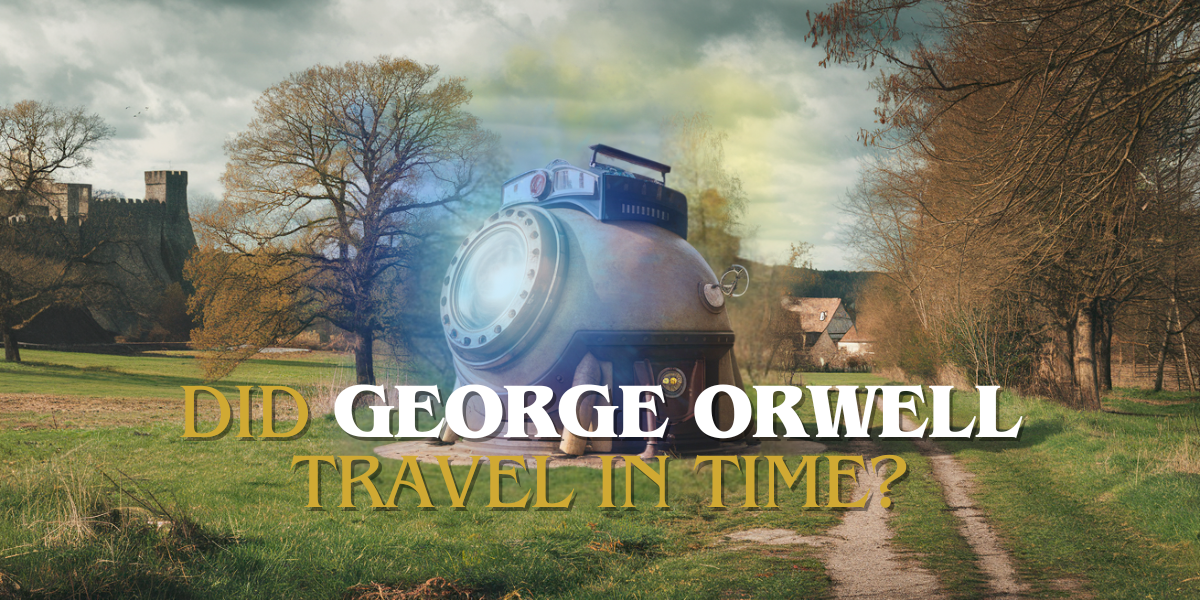Did George Orwell Travel in Time?
When the social, political, or organizational scene gets complicated to understand, I go back and read my favorite books. I finished reading again, for the 20th time, my two favorite books, 1984 and Animal Farm, and I would like to share my reflection.
In the history of books, two stand out because they seem like they tell the future: Animal Farm and 1984. George Orwell wrote these books, showing how control and manipulation work. But they are so proper about today’s world—not just in politics but also in corporate business and organizations. We must ask: Did Orwell travel in time to see the future?
Let’s look at the proof.
The Ministry of Truth—Did He Know?
The Ministry of Truth in 1984 changed history and told lies to control people. Today, we see the same thing in government propaganda and corporate marketing and PR strategies. Organizations and even global institutions reshape narratives to maintain their image. Within some organizations, the leadership creates a facade of development and empowerment. At the same time, behind the scenes, a network of close allies manipulates facts and hides inefficiencies to protect their interests. On a global scale, nations make promises of peace and progress while engaging in covert struggles for power. Orwell wrote about this before modern branding or digital media! He may have seen it happen when he traveled to our time.
“All Animals Are Equal, But Some Are More Equal Than Others”
In Animal Farm, this sentence explains how leaders promise fairness but take more power. Today, many organizations claim to promote skill development and empowerment but often create systems where only a select group benefits. Usually aligned with leadership, these individuals thrive by sustaining a culture of favoritism and corruption while others are left behind. On a larger scale, global initiatives aimed at equality often mask the self-serving interests of powerful nations.
Did Orwell visit our time and watch executives, politicians, and their inner circles copy the pigs from his book? Or did he understand human behavior too well?
Big Brother Is Watching Us
In 1984, Big Brother watches everything. Corporate surveillance is everywhere today, from monitoring employee productivity to tracking consumer behavior through data. Governments, too, have embraced surveillance to an unprecedented degree, often in the name of security. Some organizations and states use such surveillance not to support growth but to control and intimidate individuals, ensuring compliance and suppressing dissent.
Orwell might not have invented this idea—maybe he saw it in the future!
Newspeak and Doublethink: New Words, Same Tricks
Orwell made up Newspeak to show how language can control people. Today, corporate jargon like “synergize,” “right-sizing,“ and “culture fit“ is used to obscure true meanings. Layoffs are rebranded as “streamlining operations,“ and excessive workloads are called “stretch opportunities.“ In global politics, phrases like “collateral damage“ and “strategic ambiguity“ mask harsh realities. In some organizations and states, “empowerment“ and “innovation“ mask stagnation and favoritism.
Did Orwell predict modern communication strategies, or did he know the power of words?
Proles and Entertainment
In 1984, the proles are distracted with silly entertainment, so they do not think about big problems. Today, employees in organizations are often kept busy with perks, gamification, or superficial initiatives to avoid addressing structural issues. On a global scale, populations are usually distracted with consumerism, entertainment, and sensational news cycles. At the same time, critical issues like inequality, climate change, and systemic corruption remain unaddressed. Leadership may celebrate small, flashy successes to keep attention away from more profound problems.
Did Orwell attend a future corporate retreat or global summit and get inspired? Or maybe he just knew people love distractions.
Did Orwell Visit the Future?
It is fun to imagine Orwell sitting in a modern boardroom or a global summit, writing notes about everything he saw. “Surveillance everywhere? Great idea for my book. Corporate jargon controlling minds? A perfect example of Newspeak! Distractions in the workplace and society? Just like the proles!“ Maybe he didn’t imagine the future—perhaps he lived it.
What Do We Learn?
Whether Orwell traveled in time or not, his books are important because they explain human problems. His stories show the dangers of control, manipulation, and distraction, whether in politics, global dynamics, or business. The same lessons apply to organizations and nations: leadership that serves itself over its people creates a toxic environment where truth and growth are sacrificed for power and privilege.
Did Orwell see the future, or did People make the same mistakes?
So, did Orwell travel in time? Maybe not. But his books still show us truths about our world. The real question is: Will we ever stop making his stories come true?

-
1984: This dystopian novel explores themes of totalitarianism, surveillance, and censorship. It highlights how governments can manipulate truth and control populations, making it a crucial read in the context of discussions about privacy, misinformation, and authoritarianism today.
-
Animal Farm: This allegorical novella critiques political corruption and the betrayal of revolutionary ideals. It reflects on how power can corrupt and how those in authority may exploit their positions. The lessons about propaganda and the cyclical nature of power are pertinent in today’s political climate.
